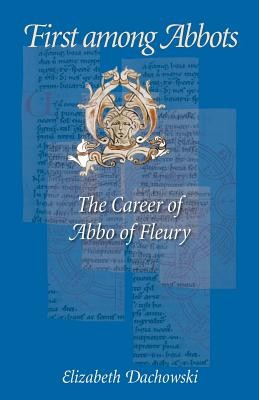
- We will send in 10–14 business days.
- Author: Elizabeth Dachowski
- Publisher: Catholic University of America Press
- ISBN-10: 0813226171
- ISBN-13: 9780813226170
- Format: 14.7 x 21.7 x 1.9 cm, softcover
- Language: English
- SAVE -10% with code: EXTRA
Reviews
Description
Abbo of Fleury was a prominent churchman of late tenth-century France--abbot of a major monastery, leader in the revival of learning in France and England, and the subject of a serious work of hagiography. Elizabeth Dachowski's study presents a coherent picture of this multifaceted man with an emphasis on his political alliances and the political considerations that colored his earliest biographical treatment. Unlike previous studies, Dachowski's book examines the entire career of Abbo, not just his role as abbot of Fleury. When viewed as a whole, Abbo's life demonstrates his devotion to the cause of pressing for monastic prerogatives in a climate of political change.
Abbo's career vividly illustrates how the early Capetian kings and the French monastic communities began the symbiotic relationship that replaced the earlier Carolingian models. Despite a stormy beginning, Abbo had, by the time of his death, developed a mutually beneficial working relationship with the Capetian kings and had used papal prerogatives to give the abbey of Fleury a preeminent place among reformed monasteries of northern France.Thus, the monks of Fleury had strong incentives for portraying the early years of Abbo's abbacy as relatively free from conflict with the monarchy.
Previous lives of Abbo have largely followed the view put forward by his first biographer, Aimoinus of Fleury, who wrote the Vita sancti Abbonis within a decade of Abbo's death. While Aimoinus clearly understood Abbo's goals and the importance of his accomplishment, he also had several other agendas, including a glossing over of earlier and later conflicts at Fleury and validation of an even closer (and more subservient) relationship with the Capetian monarchs under Abbo's successor, Gaulzin of Fleury. Abbo's achievements set the stage for the continuing prosperity and influence of Fleury but at the expense of Fleury's independence from the monarchy. With Abbo's death, the monastery's relationship with the French crown grew even closer, though Fleury continued to maintain its independence from the episcopacy.
EXTRA 10 % discount with code: EXTRA
The promotion ends in 19d.22:17:19
The discount code is valid when purchasing from 10 €. Discounts do not stack.
- Author: Elizabeth Dachowski
- Publisher: Catholic University of America Press
- ISBN-10: 0813226171
- ISBN-13: 9780813226170
- Format: 14.7 x 21.7 x 1.9 cm, softcover
- Language: English English
Abbo of Fleury was a prominent churchman of late tenth-century France--abbot of a major monastery, leader in the revival of learning in France and England, and the subject of a serious work of hagiography. Elizabeth Dachowski's study presents a coherent picture of this multifaceted man with an emphasis on his political alliances and the political considerations that colored his earliest biographical treatment. Unlike previous studies, Dachowski's book examines the entire career of Abbo, not just his role as abbot of Fleury. When viewed as a whole, Abbo's life demonstrates his devotion to the cause of pressing for monastic prerogatives in a climate of political change.
Abbo's career vividly illustrates how the early Capetian kings and the French monastic communities began the symbiotic relationship that replaced the earlier Carolingian models. Despite a stormy beginning, Abbo had, by the time of his death, developed a mutually beneficial working relationship with the Capetian kings and had used papal prerogatives to give the abbey of Fleury a preeminent place among reformed monasteries of northern France.Thus, the monks of Fleury had strong incentives for portraying the early years of Abbo's abbacy as relatively free from conflict with the monarchy.
Previous lives of Abbo have largely followed the view put forward by his first biographer, Aimoinus of Fleury, who wrote the Vita sancti Abbonis within a decade of Abbo's death. While Aimoinus clearly understood Abbo's goals and the importance of his accomplishment, he also had several other agendas, including a glossing over of earlier and later conflicts at Fleury and validation of an even closer (and more subservient) relationship with the Capetian monarchs under Abbo's successor, Gaulzin of Fleury. Abbo's achievements set the stage for the continuing prosperity and influence of Fleury but at the expense of Fleury's independence from the monarchy. With Abbo's death, the monastery's relationship with the French crown grew even closer, though Fleury continued to maintain its independence from the episcopacy.


Reviews